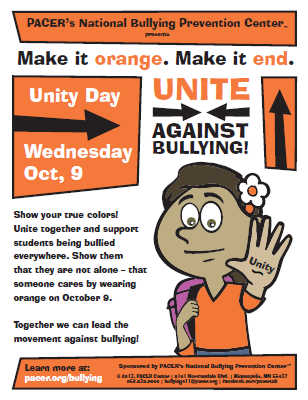“The only way you can write the truth is to assume that what you set down will never be read. Not by any other person, and not even by yourself at some later date. Otherwise you begin excusing yourself. You must see the writing as emerging like a long scroll of ink from the index finger of your right hand; you must see your left hand erasing it.” ― Margaret Atwood, The Blind Assassin

After re-reading what I wrote a few months ago about sibling bullying, I thought about my own experiences. I wrestled with writing about my own personal experience, but, in the end, decided that to do so would illuminate my points more effectively than citing someone else’s research. And, because patterns in my life have changed, most notably a significant shift in my relationship with my brother, I put a choke hold on the trepidation that I would unnecessarily expose myself. After all, I reminded myself, a writer is bound by a tacit code to tell the truth. And, in the telling, hopefully offer something of value to the reader.
I was bullied as a child and young adult by my brother and his friend: physically hurt, verbally tormented, having my possessions taken or destroyed. I quickly became apprehensive all the time. At first, my escape was to write in a diary. That, too, was stolen by my brother and eventually shown to my mother, who punished me for writing such “awful things about her and my brother”. So I went underground with my writing. I penned page after page of imagined stories where I was the heroine slaying the dragons, always named after my brother and mother, of course. I would then tear up the pages into tiny bits to throw away.
Although I was a very good student and a very good girl, I grew into adulthood angry and anxious, striving to please the wrong people. My first, early marriage was a disaster; after leaving the hospital for an attempted suicide, I came to Seattle to be with my family. Working in a mind-numbing job as a receptionist, I met and, became engaged to, a man who was a mean alcoholic. I later moved with him to California, where one night, for reasons I never understood, he took his twenty-two rifle and blew my kitten off my lap.
I returned once again to Seattle to be with my family. But this time, I told myself, everything would be different. My brother and his wife generously let me stay with them until I could afford to get a place of my own. I had a challenging and interesting job that paid well, found an apartment on Alki Beach, and spent a lot of time reading the psychology books that I had lugged around with me since college. I dated but did not commit to anyone. I made friends, women and men. I enjoyed a deepening friendship with my neighbor and his son; later, that friendship with my next door neighbor would burgeon into a romantic liaison that has lasted thirty-seven years.
What changed me so significantly? Well, I decided to tell a different story. The story I wanted to live. I sat for hours filling in the details of my story as I wanted to live it. And, in the telling of my new story, I recognized several factors that had replayed themselves throughout my history. I was tired of being afraid, of being fat, and I was just plain disgusted with myself for betraying my values, most importantly, devaluing myself. Although struggling with weight is still my issue, I confronted the ghosts that haunted me, ripped the shroud of illusions and woke up to becoming a woman I respected. Do I make this sound like it was an easy process? On the contrary, it was far from easy. But along the way, I found forgiveness and acceptance, which has been empowering.
Of course, this is only a fragment of the truth. The story plays out in myriad versions, all true, all equivocation. But I like reminding myself regularly that dragons get slayed by the most unlikely heroines.
 Please join me and thousands of educators, parents, students and community members in observing National Anti-Bullying Awareness month this October. Some communities are holding awareness events and many schools are hosting guest speakers and celebrating Unity Day on Wednesday October 10th.
How You Can Help with
National Bullying Prevention Month:
Please join me and thousands of educators, parents, students and community members in observing National Anti-Bullying Awareness month this October. Some communities are holding awareness events and many schools are hosting guest speakers and celebrating Unity Day on Wednesday October 10th.
How You Can Help with
National Bullying Prevention Month:




